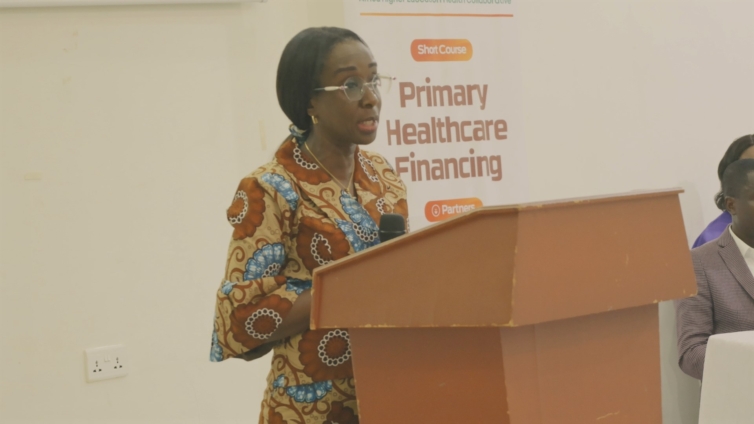
Audio By Carbonatix
The Food and Drugs Authority (FDA) is making a case for health technology assessment in the efficient use of resources for improved healthcare delivery in developing countries.
The CEO of the Authority, Dr Mimi Darko believes Ghana’s healthcare surging reliance on technologies makes it imperative.
“In our pursuit of meeting the demands of evolving trends, particularly in technology and assistive devices, the significance of health technology assessment cannot be overstated.
"Especially in developing countries where resources are often scarce, efficient allocation is paramount.
“Health technology assessment serves as a compass in efficient utilisation of our resources to ensure we have optimal healthcare delivery.
"Especially in Ghana, there is the need for health technology assessment and it has become more pronounced across all facets of the health sector even in the remotest areas,” she noted.
Dr Darko also touched on the role of health regulation in fulfilling the SDGs.
“I am confident the course content will shed light on the vital role of regulatory issues in achieving the Sustainable development Goals,” she charged.
She was speaking at the opening ceremony of the Health Technology Assessment (HTA) and Healthcare Industry and Regulatory Affairs (HIRA) courses by the Africa Higher Education Health Collaborative at the Kwame Nkrumah University of Science and Technology.
The Health Technology Assessment (HTA) and Healthcare Industry and Regulatory Affairs (HIRA) courses are spearheaded by the Health Employment Pillar of the Collaborative led by Dr. Kofi Akohene Mensah.
Health Technology Assessment (HTA) allows a critical assessment of health technologies as a basis for making evidence-based decisions in the health sector.
The course has been accredited by various health professional bodies for Continuous Professional Development (CPD) points.
32 and 30 health personnel were allowed to take part in the second cohort of the Health Technology Assessment (HTA) and Healthcare Industry and Regulatory Affairs (HIRA) courses respectively.
The Principal Investigator of the Collaborative, Prof. Ellis Owusu-Dabo entreated participants to take advantage of the opportunity to impact their community.
The partners in the workshop include: KNUST School of Public Health, The DAAD-PAGEL (German Academic Exchange Service Partnership for the Health Sector in Developing Countries) Accelerating Capacity-Building in Health Systems Research and Management in Africa Project, and the German-West African Centre for Global Health and Pandemic Prevention (G-WAC)
The rest are the Department of Health Care Management at the Technische Universitat Berlin (TUB), Germany, the Norwegian Institute of Public Health, Norway, and the HTA Secretariat of the Ministry of Health, Ghana.
Latest Stories
-
Kensei-Kai partners Ghana Karate Federation for high school coaching workshop
4 minutes -
Kofi Kapito calls for investment in high-quality hospital beds
6 minutes -
Asokore Mampong MCE Ben Abdullah Alhassan denies Interior minister land grab claims
11 minutes -
Ghana activates border bases, deploys defence attachés after Burkina Faso terrorist attack on traders
13 minutes -
PPA targets 90% drop in procurement breaches with full e-procurement rollout
14 minutes -
Sustainable aviation fuels could unlock major economic opportunities for Ghana, ICAO expert says
22 minutes -
Ghana takes major step towards sustainable aviation with SAF feasibility workshop
24 minutes -
Ghana International School and Coral Reef Innovation Africa sign landmark MoU to establish innovation center of excellence
27 minutes -
Ghana poised to lead Africa’s green aviation revolution, says GCAA Director-General
28 minutes -
Chinese dance group’s tour triggers bomb threat against Australian PM
39 minutes -
Senegal PM proposes doubling prison sentence for same-sex relations
41 minutes -
Clement Apaak defends dog and cat meat consumption, rejects health and ethical criticism
43 minutes -
Minority leader Alexander Afenyo-Markin urges government to enable, not control economy
43 minutes -
Mercy to the World scales up Ramadan feeding campaign, targets over 25,000 people
45 minutes -
Four arrested for posing as security operatives in illegal anti-galamsey extortion
46 minutes

